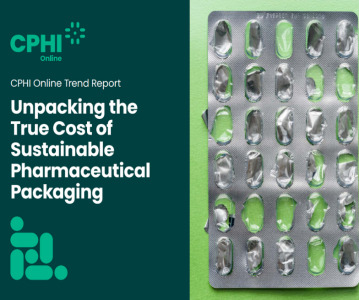Viral vector demand to flourish on wave of imminent approvals, CPHI Worldwide audience told

Expected increase in approvals for gene therapies, gene-modified cell therapies and recombinant vector vaccines will also increase pressure on manufacturers to build new capacity
An imminent wave of approvals for pipeline gene therapies, gene-modified cell therapies and recombinant vector vaccines is set to give a further boost to growing demand for viral vectors but will also increase the pressure on manufacturers to expand capacity, delegates at the CPHI Worldwide online conference were told Monday.
In the live session, Building Viral Vector Capacity and Capabilities to Realise the Promise of Gene Therapies sponsored by Thermo Fisher Scientific, experts discussed how continuing advances in cell and gene therapy are transforming how biopharma companies treat and potentially cure certain diseases in this fast-evolving field.
Viral vectors are the carriers used to deliver genetic material to cells to prevent or fight disease and are commonly used by gene therapies and recombinant vector vaccines.
Peter Shapiro, Senior Director of Drugs and Business Fundamentals at GlobalData said there were currently more than 3,000 pipeline gene therapies, gene-modified cell therapies and recombinant vector vaccines in the development pipeline from the discovery stage to the pre-registration stage.
He added that using GlobalData’s Likelihood of Approval tool which tracks and predicts the likelihood of approval and phase transition success using Machine Learning and proprietary models, “if we look at this list of 3,000+ drugs and narrow it down to the ones in the clinical phase, we estimate that more than 100 of these gene/gene-modified cell therapies will eventually be approved – this will push viral vector demand even higher.”
Shapiro said that in response to rising demand, CDMOs had started to build manufacturing capacity for viral vectors, but compared with monoclonal antibody therapies, there was relatively little capacity with less than 100 contract viral vector facilities worldwide, the majority of which are in the US.
Chris Murphy, Vice President and General Manager of Viral Vector Services at Thermo Fisher Scientific said around 60% of innovative biopharma companies were currently outsourcing viral vector production due to differences in facility requirements and the need for specialist expertise.
“This industry blew up in the last five years and it really didn’t have the capacity or capabilities initially,” he said. “There’s a lot of expertise at innovators and it’s not that different from biologics production per se but there is a tendency to outsource because that is where the expertise lies.”

Related News
-
News Sanofi invests billions into Frankfurt insulin production site
French pharmaceutical company Sanofi have announced an investment of EUR1.3 billion at their existing BioCampus site in Frankfurt am Main for the expansion of insulin production. -
News Novel oral Type 1 diabetes drug gains US FDA IND designation
A University of Alabama at Birmingham startup has gained FDA clearance for Investigational New Drug clinical trials for an oral Type 1 diabetes drug, a milestone for diabetes treatment. -
News BIOSECURE Act continues to loom over Chinese pharma manufacturers
With the US BIOSECURE Act on its way to passing into legislation, Chinese companies are facing declining revenues within the first half of 2024 as US pharmaceutical and healthcare companies pull their businesses from the country. -
News Alzheimer’s drug Leqembi rejected by EU drug regulator
The European Medicine’s Agency (EMA), the drug regulator for the EU, rejected Eisai and Biogen’s Alzheimer’s drug product Leqembi, citing the drug’s slowing of cognitive decline did not outweigh the risk of serious brain swellin... -
News Second obesity drug candidate from Roche shows early trial success
Following from its purchase of Carmot Therapeutics, Roche have announced positive early-stage trial success for its second obesity drug candidate acquired from Carmot Therapeutics. -
News Tumour microproteins could provide basis for cancer vaccines
A recent study published in Science Advances has identified a set of microproteins produced exclusively in liver tumours, which may provide a clear target for the development of a cancer vaccine. -
News Reworked once-daily weight-loss pill from Pfizer to progress
American pharmaceutical giant Pfizer have continued with a reworked version of their weight-loss pill danuglipron, progressing with a once-daily version of the pill. -
News CPHI Online Trend Report: what is pharmaceutical packaging really costing the industry?
The latest CPHI Online Trend Report dives into what it really costs to develop, manufacture, and deploy pharmaceutical packaging that balances sustainability concerns, patient safety, and drug efficacy.
Position your company at the heart of the global Pharma industry with a CPHI Online membership
-
Your products and solutions visible to thousands of visitors within the largest Pharma marketplace
-
Generate high-quality, engaged leads for your business, all year round
-
Promote your business as the industry’s thought-leader by hosting your reports, brochures and videos within your profile
-
Your company’s profile boosted at all participating CPHI events
-
An easy-to-use platform with a detailed dashboard showing your leads and performance
.png)
.png)
.png)
.png)
.png)

.png)
